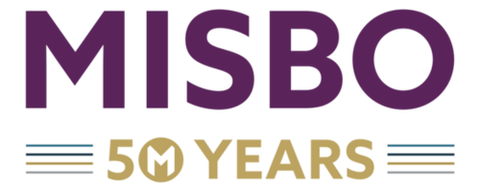Retirement Plans: Fixing plan mistakes and the IRS’s correction program
Retirement plans are complicated, and with all the moving parts involved, it is easy to overlook something. The IRS recognizes that honest mistakes will happen and established a program, the Employee Plans Compliance Resolution System (EPCRS), to provide plan sponsors an opportunity to identify and correct mistakes.
Beginning in 1991, the IRS created various correction programs over the years for different types of plans and errors. In 1998, the various programs were consolidated into the EPCRS. EPCRS has been tweaked over the years with the latest update in 2021 (Rev. Proc. 2021-30) and includes these programs:
- The Self Correction Program (SCP)
- The Voluntary Correction Program (VCP)
- The Audit Closing Agreement Program (Audit Cap)
Under the SCP and VCP, plan sponsors have an opportunity to identify and fix errors before the IRS is involved. Under the SCP, plan sponsors may self-correct certain operational and plan document failures without submitting the error and correction to the IRS. Under the VCP, the failure and proposed correction are filed with the IRS and a user fee applies. If the IRS finds the failure first, the failure will be corrected under the Audit CAP and involves a negotiated sanction which is generally more than the VCP user fee for the same failure. We recommend engaging Employee Retirement Income Security Act (ERISA) legal counsel with the last two programs if the organization is unsure about whether the failure may be self-corrected.
With the IRS’ 2021 update to the EPCRS program, the Self Correction Program was expanded and, depending on the failure, plan sponsors may find it easier to self-correct now. Changes to the program include:
- The general correction period for certain failures was extended from two to three years following the year in which the failure occurred.
- The safe harbor correction method for plans with an automatic enrollment feature that was not implemented properly has been extended to 12/31/2023.
- Certain plan document failures may now be corrected with retroactive plan amendments.
- Subject to certain conditions, an operational failure may be eligible for correction by plan amendment.5. Certain plan loan failures may be corrected under SCP.
What to do if you discover a mistake? As soon as the error is identified, it is important to correct it as soon as possible. See the IRS EPCRS Overview to determine which correction program applies. Contact your vendors, plan auditors, ERISA legal counsel, etc. for assistance in determining the appropriate next steps.
In all cases, keep records of the correction with the plan documents in case of an audit and establish a process to prevent the mistake from occurring again. Taking the following steps can help you identify and correct mistakes quickly:
• implementing and following internal controls;
• implementing and following internal controls;
• performing an annual internal audit of plan provisions and administration;
• completing annual nondiscrimination tests and verifying contribution limits and eligibility;
• performing a preliminary nondiscrimination test prior to the plan year end; and
• reviewing the plan document periodically to ensure administration follows the document and any plan changes have been captured by amendment or restatement.
Mistakes happen in administering retirement plans. Implementing a few internal controls can help catch those mistakes before they become too costly. Once you have caught those errors, the IRS has made it easier to correct mistakes quickly and at a lower cost than ever before.
 Dave Mauger is a Managing Partner at New Pinnacle Consulting Group which provides a full range of retirement plan services and specializes in 403(b) retirement plans.
Dave Mauger is a Managing Partner at New Pinnacle Consulting Group which provides a full range of retirement plan services and specializes in 403(b) retirement plans.
New Pinnacle Consulting Group, LLC offers a full range of retirement plan consulting services designed and priced for small and medium-sized organizations. Their specialty is 403(b) retirement plans, where the founding partners have over 50 years of combined experience. Services include comprehensive compliance reviews, annual compliance services such as nondiscrimination testing, limit calculations, Form 5500, and plan start-up services including plan design, implementation, and plan document preparation. They have an established network of firms that provide legal and other support. All services are performed for a fixed price.
